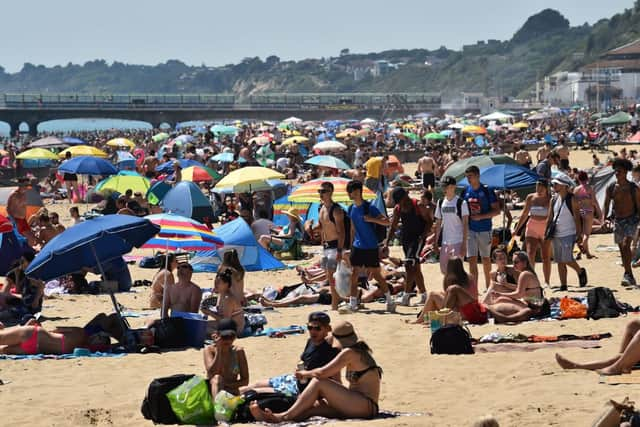What is heatstroke? Signs and symptoms, is it linked to heat exhaustion, and treatment - amid UK heatwave
and live on Freeview channel 276
Temperatures are forecast to soar again this week as a new heatwave sweeps across the UK.
The Met Office has issued a four-day amber warning for extreme heat in parts of England and Wales for Thursday to Sunday, with temperatures expected to reach 36C in some areas.
Advertisement
Hide AdAdvertisement
Hide AdA heat health alert is also in place from the the UK Health Security Agency (UKHSA) as experts warn the hot weather is likely to cause adverse health effects, particularly among the elderly, young children, and those with existing health conditions.
People are being urged to take care in the heat and be aware of the signs of heatstroke as more hot weather is on the way this week. Here’s what you need to know to stay safe in the sun.


What are the symptoms of heatstroke?
The UKHSA is urging people to take care in the heat and be aware of the common signs of heat exhaustion and heatstroke.
Heat exhaustion is not usually serious if you can cool down within 30 minutes, but if it turns into heatstroke, it needs to be treated as an emergency, the NHS says.
Key warning symptoms of heat exhaustion include:
- a headache
- dizziness and confusion
- loss of appetite and feeling sick
- excessive sweating and pale, clammy skin
- cramps in the arms, legs and stomach
- fast breathing or pulse
- a high temperature of 38C or above
- being very thirsty
Advertisement
Hide AdAdvertisement
Hide AdThe symptoms are often the same in adults and children, although children may become floppy and sleepy.


What is the treatment for heatstroke?
If you experience any of the symptoms, it is a sign that your body needs to be cooled down.
Drinking plenty of water and applying it to your skin will help, as well as moving to a cool, shaded spot, lying down and raising your feet slightly.
If you do not start to feel better and display any of the following signs, you should call 999 immediately:
- feeling unwell after 30 minutes of resting in a cool place and drinking plenty of water
- not sweating even while feeling too hot
- a high temperature of 40C or above
- fast breathing or shortness of breath
- feeling confused
- a fit (seizure)
- loss of consciousness
- not responsive
Advertisement
Hide AdAdvertisement
Hide AdThese symptoms are all signs you may be suffering from heatstroke which can be very serious if it is not treated quickly:
How do I prevent heatstroke?
To help prevent heat exhaustion or heatstroke, the NHS recommends:
- drinking lots of cold drinks, especially when exercising
- taking cool baths or showers
- wearing light-coloured, loose clothing
- sprinkling water over skin or clothes
- avoiding the sun between 11am and 3pm
- avoiding excess alcohol
- avoiding extreme exercise
These tips will also help to prevent your body from dehydrating, as well as keeping you cool.
Comment Guidelines
National World encourages reader discussion on our stories. User feedback, insights and back-and-forth exchanges add a rich layer of context to reporting. Please review our Community Guidelines before commenting.
